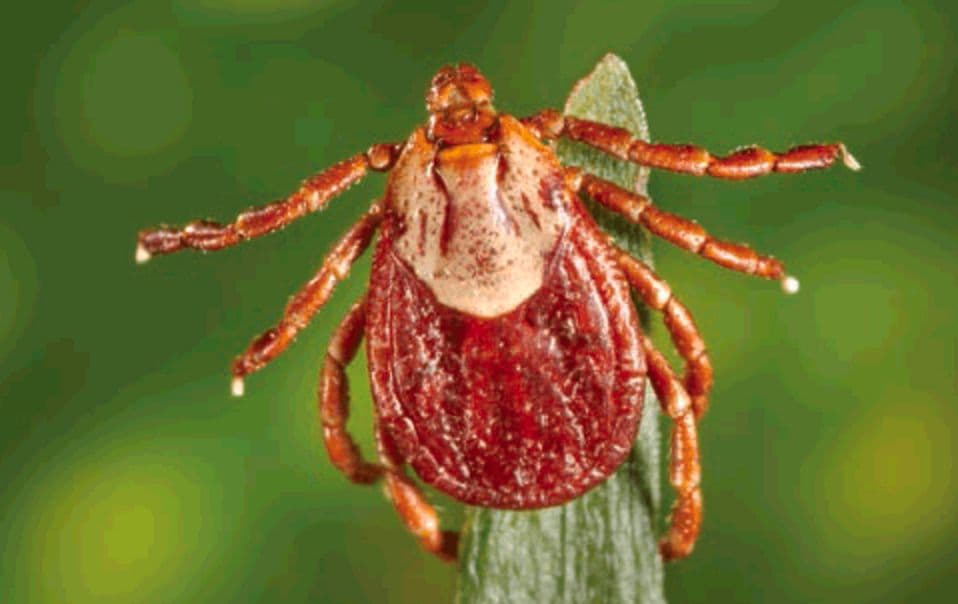Lyme Disease and Pregnancy
Infections
Obie Editorial Team

Discovering a tick on your dog, or child, or even your own body can be a frightening finding, especially with the growing prevalence of Lyme disease. If you are pregnant and get bitten by a tick, your anxiety may reach heightened proportions. What do you do if you are bitten by a tick and you're pregnant? Will it affect your unborn baby? Will you get Lyme disease? And what should you do right now?
What is Lyme disease?
Lyme disease is caused by a type of bacteria known as Borrelia burgdorferi. The disease is transmitted to people and pets through the bite of infected black-legged ticks, and only 1 to 3 percent of tick bites cause the disease.
What are the symptoms of Lyme disease?
If you contract Lyme disease, you may get a fever, headache, and feel very fatigued. You may also notice a characteristic skin rash called erythema migrans, which resembles a bull's eye.
How is Lyme disease diagnosed?
Lyme disease is sometimes treated based on symptoms and evidence of a tick bite. This is largely because the disease may not show up in the blood for 4-6 weeks after the bite. However, performing a blood test to confirm the presence of the bacteria is the optimal way to make a diagnosis.
The impact of Lyme disease on pregnancy
We don't know much regarding the possible harmful effects of Borrelia infections in pregnancy. Transplacental transmission of Borrelia burgdorferi has been documented in several animal studies but not in human studies, and there have been no reported cases of transmission of Borrelia via breast milk. Pregnant women should be treated via an antibiotic the same way anybody else would be treated, according to the clinical manifestation and the timing of the tick bite.
How is Lyme disease treated during pregnancy?
The treatment for Lyme disease during pregnancy is the same as the treatment when you're not pregnant: antibiotics. Antibiotic treatment includes oral amoxicillin or oral cefuroxime axetil for 2-3 weeks. Certain antibiotics, such as doxycycline, are generally not used during pregnancy because they can affect the fetus.
Typically the infection will clear up in a matter of weeks with antibiotic treatment. However, if the disease is left untreated, the infection has the potential to spread and affect the joints, heart, and nervous system.
How can you prevent Lyme disease?
The number one way to avoid Lyme disease is by taking precautions to prevent contracting the infection.
If you live in or have recently visited an area where Lyme disease is common or have recently found a tick on you, you may have reason to believe you may have come into contact with Lyme disease and should see a doctor. Keep in mind that small ticks can go unnoticed, so if you are experiencing rash, fever, chills, exhaustion, joint or muscle pain, new heart palpitations, or facial paralysis, you should also get checked out by a medical professional.
Repellents and Pregnancy
The best repellents use a chemical called DEET (Diethyltoluamide (dye-eth-il-toe-LOO-a-mide) which is very effective against ticks as well as mosquitoes, biting flies (gnats, sandflies, deer flies, stable flies, black flies), harvest mites, and fleas.
There is no evidence that the use of DEET by pregnant or lactating women poses a health hazard to unborn babies or children who are breastfeeding. In fact, the Centers for Diseases Control (CDC) has advised that pregnant women take precautions to reduce their risk of West Nile Virus infection and other infections by avoiding mosquito bites and using protective clothing and DEET-based repellents.
If you find a tick...
Make sure to remove the tick with a pair of tweezers, pulling gently to prevent the head from detaching from the body. Keep the tick in a jar as the doctor may be able to confirm the diagnosis and begin treatment after seeing the tick. Some doctors may preemptively start you on antibiotics to reduce the chance of contracting Lyme disease.
How does Lyme disease affect breastfeeding?
There have been no reports of Lyme disease transmission through breast milk.
Read More










